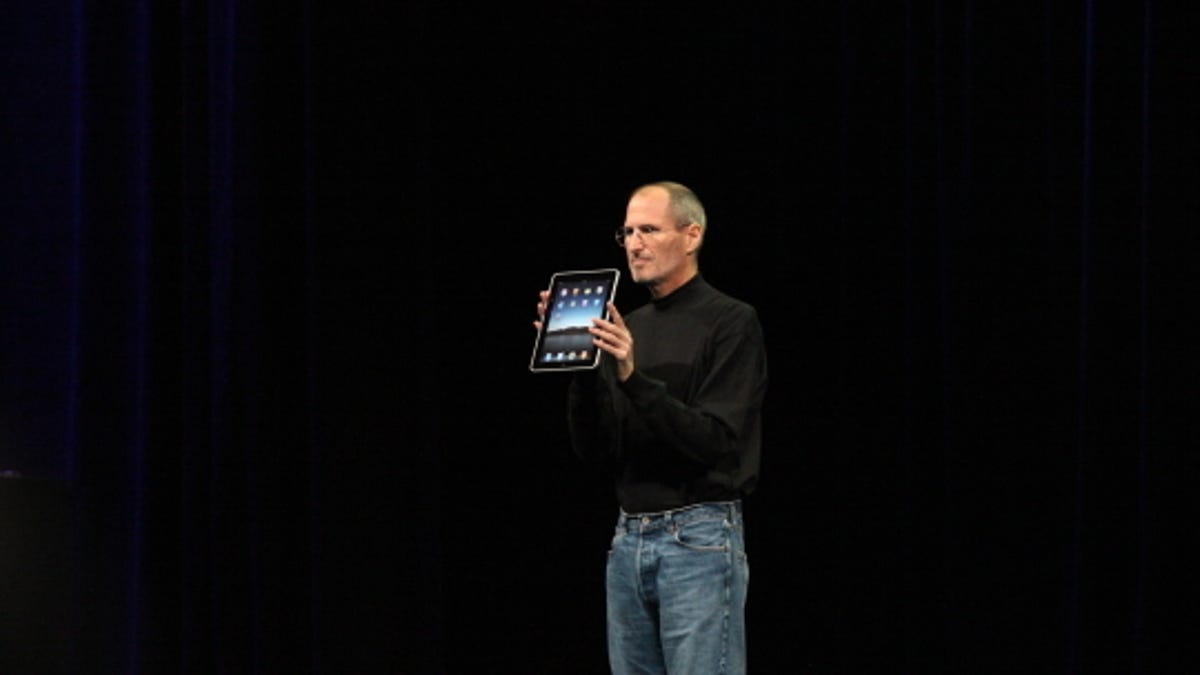Steve Jobs threatened Palm with patents over no-poaching deal, says court filing
In a sworn statement made public today, former Palm CEO Edward Colligan says Jobs brandished patents when trying to get Palm to agree to a deal in which neither company would nick the other's employees.

Steve Jobs threatened Palm with a patent lawsuit if the company didn't agree to a deal with Apple whereby neither company would poach the other's workers, according to a legal filing made public today that quotes former Palm CEO Edward Colligan.
The filing, a civil lawsuit brought by five tech workers against Apple, Google, and others that alleges the companies plotted to drive down wages, includes the following sworn statement from Colligan:
"In 2007, I received a call from Steve Jobs, the Chief Executive Officer of Apple. In the months before the call, several employees had moved between the two companies. On the call, Mr. Jobs expressed concern about employees being hired away from Apple by Palm. As a solution, Mr. Jobs proposed an arrangement between Palm and Apple by which neither company would hire the other's employees, including high tech employees. Mr. Jobs also suggested that if Palm did not agree to such an arrangement, Palm could face lawsuits alleging infringements of Apple's many patents."
Colligan's response to Jobs -- that such an arrangement was "not only wrong" but "likely illegal" -- was reported, along with mention of Apple's patents, back in 2009 by Bloomberg, which cited communications it had reviewed. But a sworn statement from Colligan became part of the public record today -- along with e-mails he says passed between him and Jobs -- after Judge Lucy Koh denied a request by the companies facing the civil suit to keep a number of sensitive documents sealed. Koh said last week that the e-mails between the two executives were key evidence for the plaintiffs in the case, according to Reuters.
In his e-mail response to Jobs, Colligan says that if Apple decides to pursue patent-related legal action, Palm can respond with patent action of its own. Jobs replies by pooh-poohing Palm's patents and saying "We are not concerned about them at all. My advice to you is to take a look at our patent portfolio before you make a decision."
Koh is considering whether the civil lawsuit can proceed as a class-action suit, Reuters reported, which could make for a larger settlement. Lawyers for the plaintiffs say damages could run into the hundreds of millions of dollars, but according to the news agency, Koh said the plaintiffs' economic analysis had "holes."
We've contacted Apple and Palm parent company Hewlett-Packard for comment and will update this post if we hear back.
Tuesday's filing also spells out how Google put together no-hire agreements, Reuters reports, and it says that then-CEO Eric Schmidt advised the company's HR director not to put anything in writing when sharing agreements with rivals. A Google representative told the news agency that Google has "always actively and aggressively recruited top talent."
Here's Colligan's sworn statement, as posted by Apple Insider:

